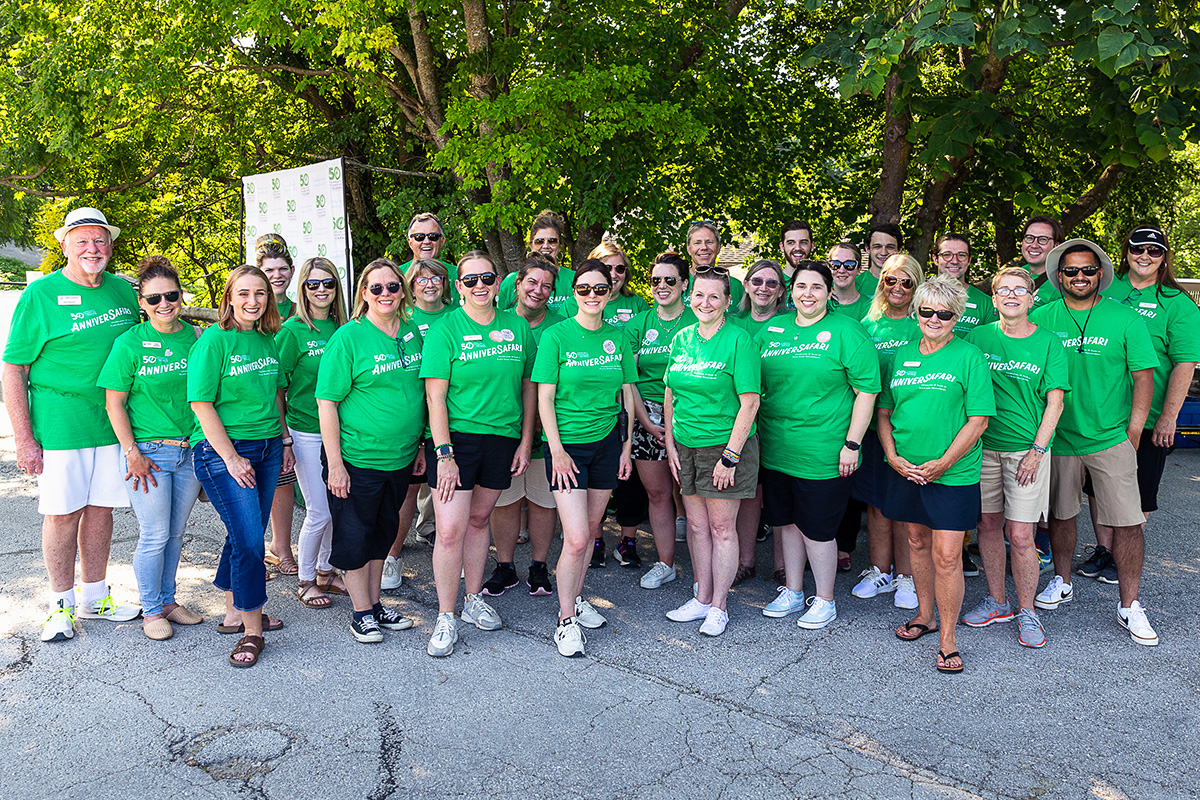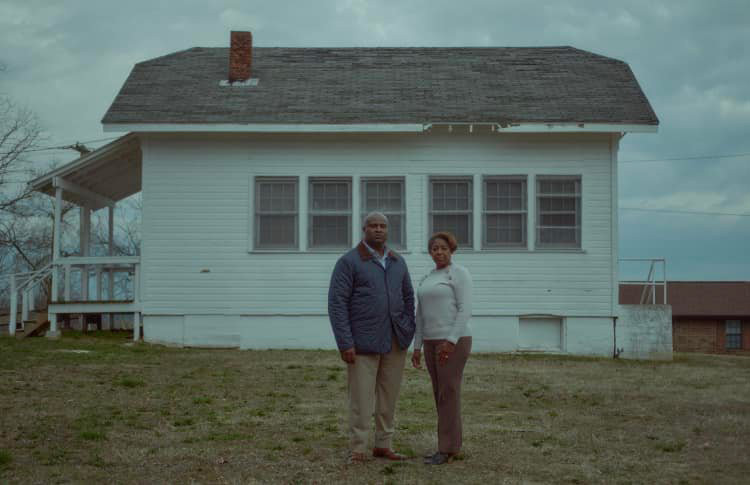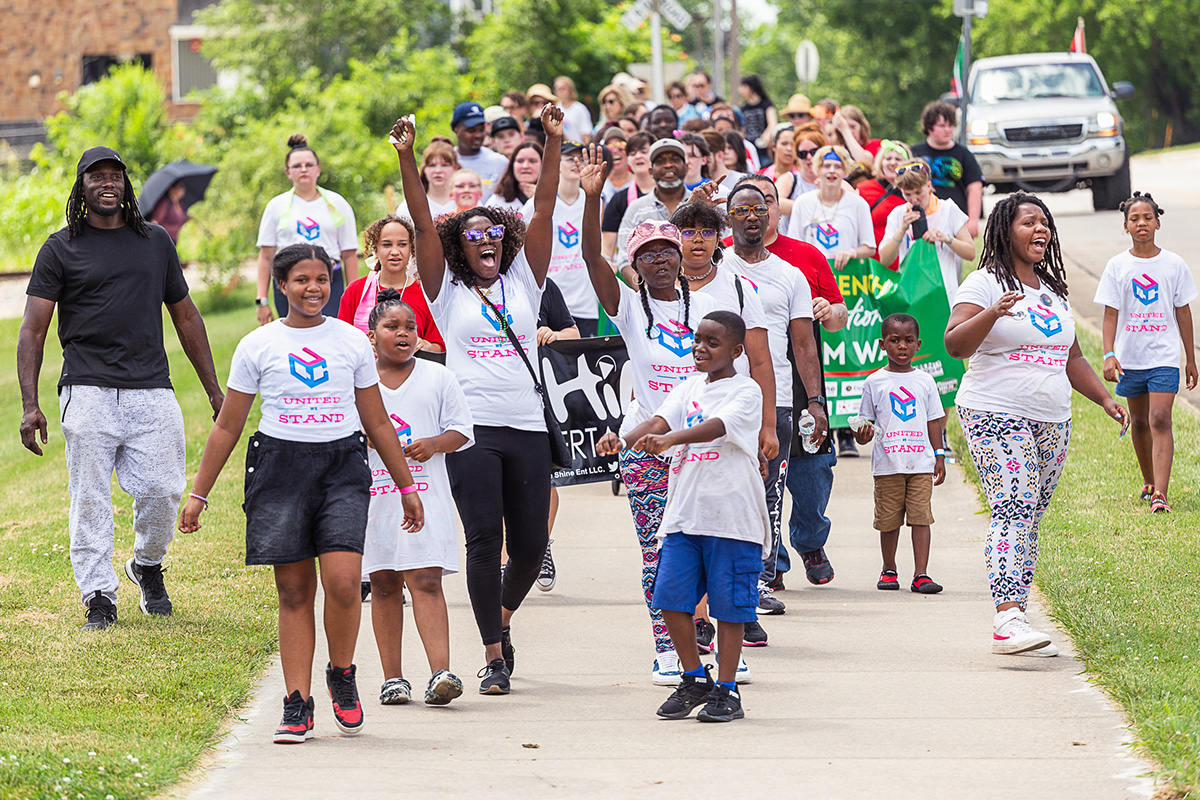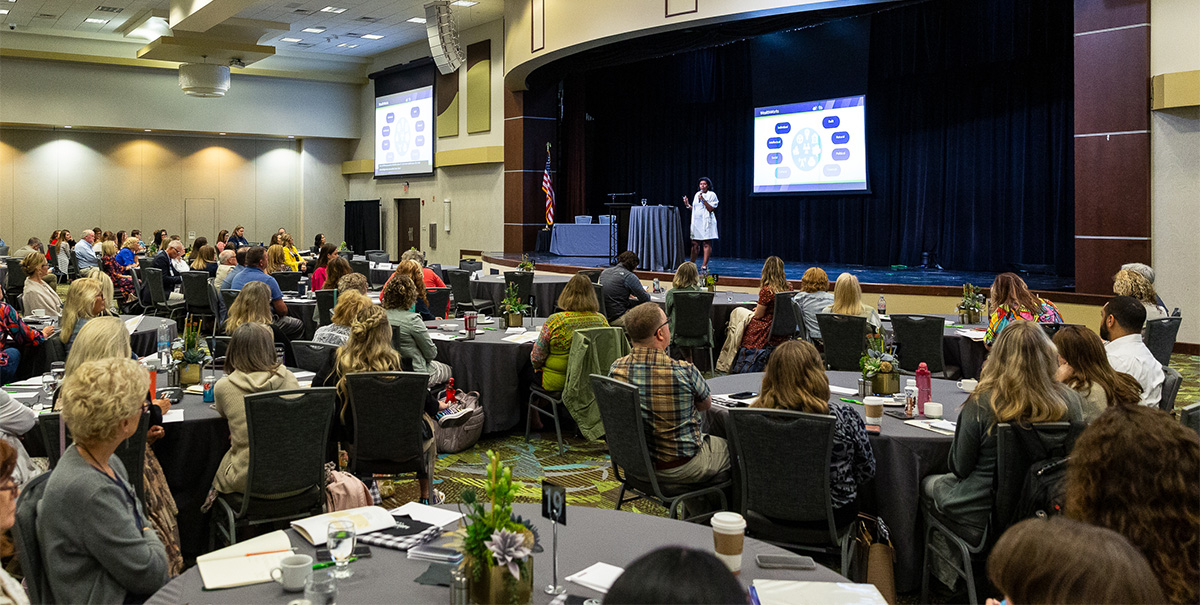
For Community Foundation of the Ozarks, impact lies in collaboration
In the heart of West Plains, Missouri, marked by its segregation-era past, stands a forgotten schoolhouse, the Lincoln School, that was once reserved for Black children. Today a community-driven effort is breathing new life into its weathered walls. Meanwhile, the emergence of the Springfield Daily Citizen, an “unbiased news outlet,” marks a new chapter in local reporting in the era of clickbait journalism. What unites these endeavors is the Community Foundation of the Ozarks (CFO), an organization transcending traditional philanthropy.
"What really sets us apart is the diversity of our organization," explains Aaron Scott, Director of Communications at CFO. "We have strong connections to the community, and through our committees, we stay up to speed on what community challenges look like.”

The Community Foundation of the Ozarks team celebrates their 50th anniversary at Dickerson Park Zoo in Springfield, Missouri. The zoo was the recipient of the CFO’s first discretionary grant in the mid-70s.
Woven together by philanthropy’s unique ability to foster collaboration, develop resources, and facilitate public leadership, CFO's nonprofit partners forge a path toward a more equitable future in Springfield and its surrounding regions.
Beyond typical funding support
CFO uses a hands-on approach that empowers nonprofits to achieve their goals. The organization offers learning opportunities that equip grantees with the resources and knowledge needed to succeed.
When CFO acted as the Lincoln School Project’s fiduciary agent, for example, fundraising efforts gained momentum. Crockett W. Oaks III, head of the Lincoln School Project, credits CFO's involvement as a "game-changer," especially with the tax incentives it enabled.
“The grants we received from CFO were like steroids to the strength of our grassroots effort,” Oaks says.
But saving the school required more than financial support. To bring the community together and rally behind a common cause, the Lincoln School Project began to make its vision of racial reconciliation through restoration public via CFO’s website. Further, CFO's reputation and advocacy lent credibility to the cause, Oaks explains.

Crockett W. Oaks III and his wife Tonya standing in front of Lincoln School before the restoration project began. Photo by Isaac Protiva.
From unrestricted funds to field-of-interest funds, CFO tailors its financial support to match program focus areas. Further, CFO’s nonprofit partner program provides myriad capacity-building services.
“Leadership circles, for instance, offer a platform for nonprofit leaders to share challenges and strategies, fostering a community of collaboration and growth,” Scott says.
CFO fosters an environment of support through these kinds of efforts, enabling nonprofits to make a real impact in their communities.
Enabling impact through collaboration
The grants team at CFO sets budgets for programs in both the Springfield, Missouri, metro area and the region. The foundation’s volunteer selection committees draw on the expertise of local residents, subject matter experts, nonprofit representatives, and community leaders.

Through grantmaking, CFO supports events that promote inclusion and belonging for diverse communities in Springfield — like the Juneteenth celebration from 2022 — and across central and southern Missouri.
“Through these committees, we make sure the right voices are at the table to help us to decide which agencies and projects should be funded through our grantmaking,” Scott explains.
These interactions, highlighting collaboration as a focus to drive change, led directly to the Springfield Daily Citizen’s formation: David Stoeffler, CEO of the Daily Citizen, met Brian Fogle, former CFO president, at one of these meetings. Their shared vision for quality journalism in Springfield spurred the creation of the publication, and CFO's support was instrumental in the Daily Citizen's journey.
"CFO excels at bringing people together," Stoeffler says.
Convening the community
CFO's leadership and programs teams are deeply embedded in the communities they serve. What began as a presence localized solely to Springfield has blossomed into a regional network of affiliates representing cities, counties, and multi-county regions from the Missouri River south to the borders of neighboring states. Governed by community volunteers and managed by a professional staff, CFO serves a network of donors, regional affiliate foundations, nonprofit partners, and professional advisors.
"Being so well-connected within our partner network helps everyone stay up to speed on community challenges," Scott says.

Since 2023, the CFO has partnered with Philanthropy Missouri to co-host the Rural Philanthropy Summit to explore philanthropy's role in developing rural communities.
The network is headed by a 21-member board with representatives from both Springfield and the broader region. The board’s size ensures diverse perspectives guide decision-making, and the intentional approach ensures voices from various backgrounds contribute to the organization's direction.
The impact of CFO's approach speaks volumes: Over $500 million has been granted since the organization’s founding in 1973. Hundreds of volunteer leaders actively participate in locally based decisions aimed at improving communities.
Collaboration is more than a buzzword. At a time when division is so prevalent in society, CFO's commitment to public leadership stands as a beacon of unity, community bonds, and the power of working together to create a more inclusive and cohesive society.


